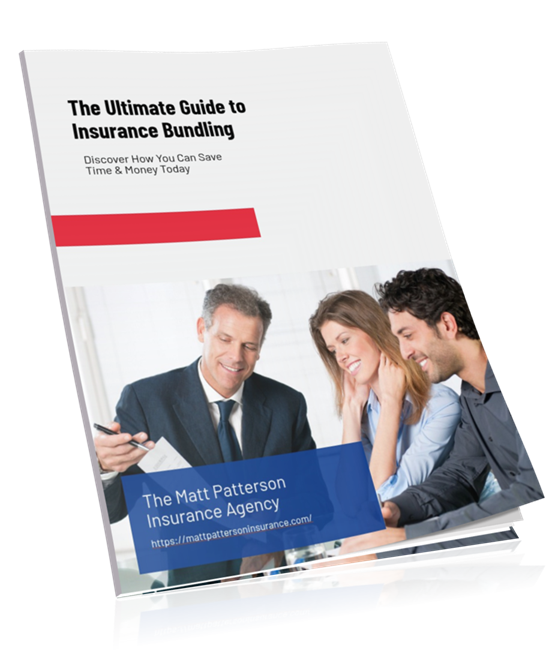As a business owner, understanding the intricacies of insurance coverage can seem daunting. However, it is critical to have a clear grasp of what types of protection are available and how they apply to your unique organizational needs. This article aims to clarify these complexities by providing an overview of common insurance policies, including liability, property, and worker’s compensation coverage.
By the end of this article, readers will feel empowered with knowledge that allows them to make informed decisions when selecting and managing their insurance plans.
Overview of Different Types of Business Insurance
Business owners need to have a keen understanding of the various types of business insurance coverage available in order to protect their assets and mitigate risks. One of the most common types is liability insurance, which covers legal claims for bodily injury or property damage caused by your business operations or products. This type of policy can include both general liability and professional liability coverage, depending on the nature of your industry.
Another crucial area of protection is property insurance, which covers physical assets such as buildings, equipment, and inventory from loss or damage due to theft, fire, or other disasters. It’s important to note that standard policies may not cover all natural disasters (such as earthquakes), so it’s essential to review your specific needs with an experienced insurance broker.
Workers’ compensation insurance provides benefits for employees who are injured on the job. It typically includes medical expenses and lost wages related to injuries sustained while working for your company. Each state has its own regulations regarding this type of coverage; so, it’s important to consult with an attorney who specializes in workers’ compensation law before choosing a policy.
Factors to Consider when Choosing an Insurance Policy for Your Business
When it comes to choosing an insurance policy for your business, there are several factors that must be taken into consideration. One of the primary concerns is the type of coverage your business requires. This will depend upon a number of factors including the size and nature of your business, as well as any specific risks associated with your operations.
Another factor to consider is the cost of the policy. While it may be tempting to opt for the cheapest option available, this approach can often end up costing you more in terms of inadequate coverage or complex procedures when filing claims. That is why it is important to strike a balance between affordability and comprehensive protection.
Finally, it is essential to understand the terms and conditions outlined in any policy before signing on. Make sure you know what is covered under each policy, how much coverage will be provided, and what exclusions apply so that you can make an informed decision about which insurance provider offers policies that best fit your needs.
By taking these factors into account along with professional advice from reputable sources such as financial advisors or brokers who specialize in financial planning in Kyle, TX – You can select an appropriate insurance plan that helps keep your business protected at all times.
How to Determine the Amount of Coverage you Need
When it comes to determining how much insurance coverage your business needs, there are several factors to consider. One of the first steps is to assess the risks your business faces in terms of liability, property damage, and employee injuries. This can involve conducting a thorough inventory of your assets and identifying any potential hazards or vulnerabilities.
Once you have a clear understanding of your risks, you can work with an experienced insurance agent or broker to develop a customized plan that meets your specific needs. They can help you choose appropriate limits for each type of coverage based on factors like the size and scope of your business, industry regulations, and local laws.
It’s also important to regularly review and adjust your coverage as needed. As your business grows or changes over time, so too may its insurance requirements. By taking a proactive approach to managing risk and staying up-to-date with coverage options, you can protect both yourself and your employees from unexpected financial losses due to accidents or other unforeseen events.
Tips for Getting the Best Rates on Commercial Insurance
One of the most important considerations for business owners when selecting commercial insurance is cost. However, it’s essential to remember that getting the best rate does not necessarily mean sacrificing quality coverage. One tip for securing an affordable rate is to shop around and compare quotes from multiple providers. Working with a reputable insurance broker who has access to multiple carriers can save you time and money in finding competitive pricing.
Another way to potentially reduce your insurance costs is by implementing risk management strategies that minimize your exposure to claims or losses. Insurance companies take into account factors such as safety protocols, employee training programs, and security measures when determining rates. By taking steps to mitigate risks within your business operations, you demonstrate a commitment to operating responsibly, which can translate into lower premiums over time.
Ultimately, maintaining open communication with your insurance provider about changes in your operations or coverage needs can also help you secure better rates in the long run. As businesses evolve and adapt over time, it’s crucial to ensure that your insurance policy remains appropriate for your organization’s current state of affairs so that you are adequately protected against potential liabilities or losses down the line.
Consider Talking to a Professional Insurance Advisor
As a business owner, you have a lot on your plate. It can be challenging to find the time and energy needed to wade through the intricacies of insurance coverage for your business. That’s where a professional Kyle insurance agent advisor can come in handy. These seasoned professionals understand the nuances of different policies and can help you determine which ones best suit your unique organizational needs.
A good insurance advisor will take the time to get to know your business, including its risks and vulnerabilities, before recommending specific policies. They will help you navigate complex terminology and jargon so that you fully understand what each policy covers (and doesn’t cover). Additionally, they can assist with claims management and provide ongoing support as your organization grows and evolves over time.
Kyle Business Insurance
It is crucial for business owners to familiarize themselves with the various types of insurance coverage available to them. From liability protection to property and worker’s compensation coverage, having comprehensive insurance policies in place can safeguard your organization from unforeseen risks and financial losses.
It is important for businesses to also regularly review their insurance plans and adjust them as necessary based on changes within their organizations or industry regulations. By consulting with an experienced Kyle business insurance agent, your company can secure the right policies that best serve your needs while ensuring compliance with legal requirements. Don’t wait until your company is in danger; take proactive action and contact the team at the Matt Patterson Insurance Agency secure the business insurance coverage you need today.





